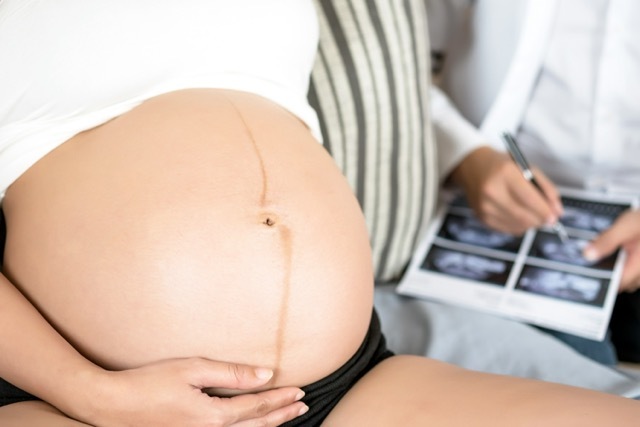
Elevated risk of stillbirth among pregnant women with obesity
Obesity before pregnancy appears to considerably increase the likelihood of perinatal mortality, suggests a mediation analysis study.
The study, involving 392,820 women, revealed that women with obesity before pregnancy had a 55% increased risk of perinatal mortality – defined as stillbirth or neonatal death prior to hospital discharge, as informed by Jeffrey Bone, a PhD candidate at the University of British Columbia, Vancouver, along with his team.
The study, published in PLoS One, also showed that even women who had overweight before pregnancy exhibited a 22% increased risk of perinatal mortality compared to women who had a normal BMI.
The largest mediator between obesity and perinatal death was the gestational age at delivery, which accounted for 63.1% of the association, according to the researchers. Adjustments were made for factors such as chronic hypertension, smoking, alcohol and substance use, previous stillbirths or preterm births, parity, maternal age, year of birth, chronic diseases, and asthma during the study.
Bone commented that women with obesity often face higher neonatal death rates and stillbirths, and the exact reasons for this remain to be fully deciphered. He said, “Our aim was to determine whether this could be partially attributed to their pregnancies ending earlier than those of women with normal weight.”
Even though these findings were anticipated, Bone believes there are still numerous questions that warrant further investigation. The team has recommended future studies to identify the specific factors contributing to higher pre-pregnancy BMI and their impact on perinatal mortality, such as inactive lifestyle, high calorie diet, and medical or genetic conditions.
The study emphasises the necessity for healthcare professionals to pay extra attention to pregnant women with obesity to prevent stillbirth and neonatal death, especially in the second trimester. Bone emphasised the complexity of the reasons for increased risks, which include maternal complications leading to preterm birth more frequently in obese women, as well as foetal and placental reasons. He stressed that more research is needed to better devise interventions for women with high pre-pregnancy BMI.
The research team evaluated data from 547,401 single live births and stillbirths in British Columbia between 2004 and 2017. The study excluded data from late terminations and women with births before 20 weeks of gestation.
Of the 392,820 women included in the study, 12.8% (50,352) were classified as having obesity, 20.6% (81,065) as having overweight, 60.6% (237,726) as normal weight, and 6.0% (23,677) as underweight. These pre-pregnancy weight categories were self-reported based on the following BMI ranges: underweight (<18.5), normal (18.5 to <25), overweight (25 to <30), and obese (BMI 30+).
The study found that, compared to women with normal BMI, those with obesity were more likely to have multiple births, smoke during pregnancy, suffer from chronic and gestational hypertension or diabetes, and have a history of caesarean delivery.
In terms of preterm birth rates, a pattern emerged correlating higher rates with an increased BMI: 7.3% among women with a normal BMI, 8.1% among overweight women, and 9.7% among women with obesity, according to the researchers.




